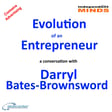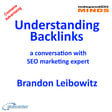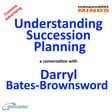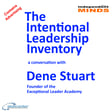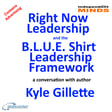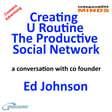
How to Lead Without Just Managing – a conversation with author William Davis
William Davis is the creator of The Leadership Blueprint which aims to address the global crisis in corporate leadership.
He is also the author of How to Lead Without Just Managing.
In this episode of the Abeceder podcast The Independent Minds, William shares with host Michael Millward his view on why and how the crisis in leadership developed.
William and Michael discuss the special role of leadership and the difference between being a leader, a manager and a boss.
They discuss the importance of leaders connecting with the people they lead, and how managers and leaders view their team members differently.
You will leave this episode with useful tips on how to be a better leader.
More information about William Davis and Michael Millward is available at abeceder.co.uk.
The Independent Minds is made on Zencastr, because as the all-in-one podcasting platform, Zencastr really does make creating content so easy.
If you would like to try podcasting using Zencastr visit zencastr.com/pricing and use our offer code ABECEDER.
Travel
William is based in Texas. With discounted membership of the Ultimate Travel Club, you can travel to Georgia, or anywhere else at trade prices on flights, hotels, trains, and so many more travel related purchases.
Fit For Work Look after your health and you will be fit for work.
We recommend The Annual Health Test from York Test; a 39-health marker Annual Health Test conducted by an experienced phlebotomist Hospital standard tests are carried out in a UKAS-accredited and CQC-compliant laboratory.
A secure Personal Wellness Hub provides easy-to-understand results and lifestyle guidance
Visit York Test and use this discount code MIND25.
Three the network Visit Three for information about business and personal telecom solutions from Three, and the special offers available when you quote my referral code WPFNUQHU.
Being a Guest
We recommend that potential guests take one of the podcasting guest training programmes available from Work Place Learning Centre.
We use Matchmaker.fm to connect with potential guests If you are a podcaster looking for interesting guests or if you have something interesting to say Matchmaker.fm is where great guests and great hosts are matched and great podcasts are hatched. Use our offer code MILW10 for a discount on membership.
We appreciate every like, download, and subscriber.
Thank you for listening.
